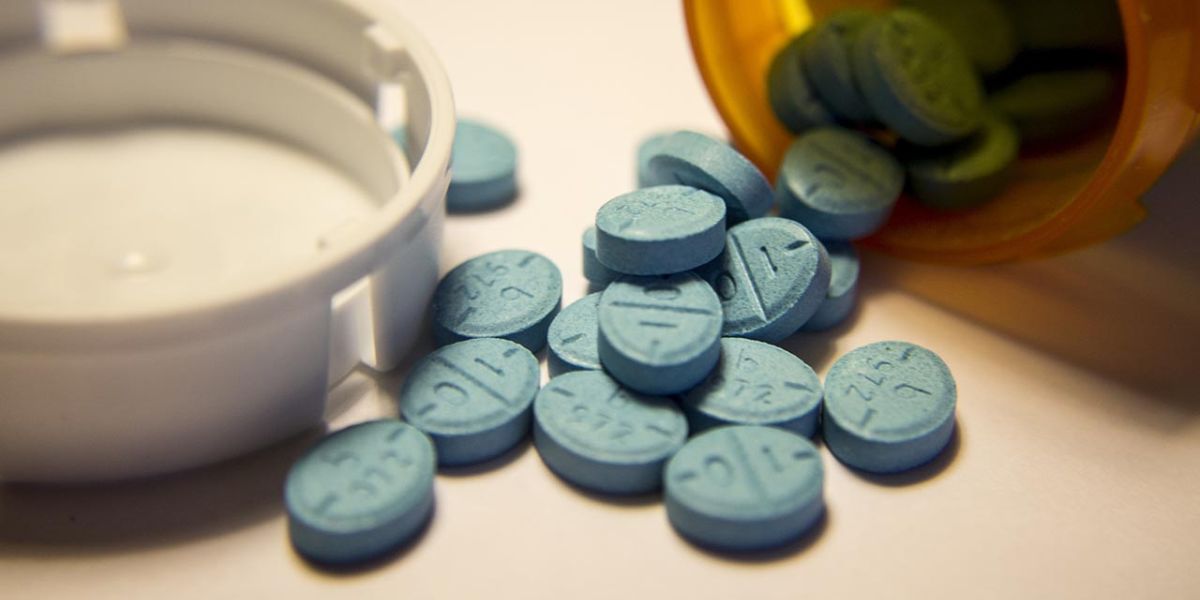Adderall Withdrawal Symptoms, Timeline, and Treatment

Adderall, a medication commonly prescribed drug for the treatment of attention-deficit hyperactivity disorder (ADHD), has a high potential for abuse because of its stimulating effects on the central nervous system. While effective for managing ADHD symptoms, Adderall can also lead to dependency, especially when taken in high doses or for a more extended period.
When someone who has developed a dependency stops taking Adderall, they may experience withdrawal symptoms, which can be both physically and mentally challenging.
What Is Adderall Used For?
Adderall is an FDA-approved medication mainly utilized for managing attention-deficit hyperactivity disorder (ADHD) and narcolepsy. It contains amphetamine and dextroamphetamine and works by increasing dopamine levels in the brain, which helps improve focus, attention, and impulse control in people with ADHD.
Adderall is available in two forms: Adderall and Adderall XR (extended-release), both of which have proven effective in managing the symptoms of ADHD. However, the drug’s stimulating effects make it prone to misuse, leading to a high potential for abuse, particularly among people looking to enhance their cognitive performance or stay awake for extended periods of time.

Side Effects of Adderall
While Adderall is effective in treating ADHD, it comes with a range of side effects that can impact users’ health. Common side effects include:
- Increased heart rate
- Elevated blood pressure
- Insomnia
- Dry mouth
- Loss of appetite
- Weight loss
- Anxiety
- Mood swings
In some cases, Adderall use can lead to more severe side effects, such as:
- Suicidal thoughts
- Paranoia
- Hallucinations
- Heart problems
Taking a lot of the medication or using it for a long time can lead to Adderall addiction and abuse. This increases the chances of experiencing withdrawal symptoms when you stop taking the drug.
Symptoms of Adderall Withdrawal
Withdrawal from Adderall can be a challenging process as the body and brain adjust to the absence of the drug. When Adderall use is suddenly stopped, the brain must cope without the regular stimulation that it has grown dependent on, which can lead to a range of uncomfortable and sometimes severe symptoms. The severity of these withdrawal symptoms often varies depending on how long the person has been using the drug and the dosage they were taking.
Common symptoms of Adderall withdrawal include:
- Fatigue: One of the most immediate symptoms, as the body reacts to the absence of the stimulant.
- Depression: Because of a sudden drop in dopamine levels, which Adderall helped maintain.
- Increased appetite: A common reaction as the body tries to compensate for the loss of appetite experienced during Adderall use.
- Insomnia or excessive sleepiness: Some people may struggle with sleep disturbances, either sleeping too much or too little.
- Anxiety: A person who abuses Adderall may experience heightened anxiety during withdrawal.
- Irritability: Mood swings are expected as the body adjusts to functioning without the drug.
- Drug cravings: The urge to retake Adderall to alleviate withdrawal symptoms can be intense.
Usually, these signs begin to appear a few hours to a day following the final dose and can persist for some days to weeks, based on the intensity of the dependency.
Adderall Withdrawal Timeline
Withdrawal from Adderall can be a challenging process as the body and brain adjust to the absence of the drug. Symptoms of withdrawal can vary in severity depending on the level of dependency and the duration of use. Common symptoms of Adderall withdrawal include:
Day 1-3: Symptoms start within the first 24 hours after the last dose. Fatigue, depression, and increased appetite are usually the first to appear. Cravings for the drug can also be intense during this period.
Day 4-7: Symptoms of withdrawal typically peak during this time. People may experience severe mood swings, anxiety, and insomnia. Physical symptoms like headaches and muscle aches can also occur.
Week 2-3: Symptoms begin to subside but can still be present. Depression and fatigue may linger, and some people might continue to experience drug cravings and difficulty sleeping.
Week 4 and Beyond: Most physical symptoms should have diminished by this point, but psychological symptoms like depression and anxiety may persist. Long-term withdrawal symptoms may include mood swings and ongoing cravings, especially in those with a severe addiction that requires long-term treatment
The timeline can be influenced by factors such as the duration of Adderall use, the dosage, whether Adderall XR or immediate-release was used, and the people’s overall health. Managing withdrawal symptoms effectively requires a combination of treatment for withdrawal and medical and psychological support.

Treatment for Adderall Addiction and Withdrawal
Managing Adderall withdrawal and overcoming addiction often requires professional help, especially for people struggling with substance abuse and mental health disorders. Adderall addiction treatment often involves therapy and medical support. This helps reduce withdrawal symptoms and addresses the underlying causes of the addiction.
Medical detox is the first step, where doctors help reduce drug use slowly to lessen withdrawal symptoms. This ensures a safer and more comfortable transition off Adderall.
People with serious addiction or mental health issues receive dual diagnosis treatment to help with both problems. At Northridge Addiction Treatment Center (NATC), we understand the complexities of overcoming Adderall addiction and the importance of comprehensive care to address any underlying issues.
Our team of experienced professionals dedicates themselves to creating personalized treatment plans that address each person’s unique needs and meet them where they are in their recovery process.
Whether you’re struggling with Adderall addiction yourself or know someone who is, NATC’s residential treatment facility provides the evidence-based addiction treatment programs, therapies, resources, and support needed for lasting recovery.
Contact NATC today to learn more about our addiction treatment programs and how we can help you or your loved one take the first step toward a healthier, drug-free life.
Find Meaningful Recovery
Our caring and compassionate specialists are eager to help you comfortably navigate this journey to recovery. Our individualized treatment plan, programs, and therapies may be a perfect match for you or your loved one. Let us assist you in living the happy life you deserve. It starts with a phone call.




